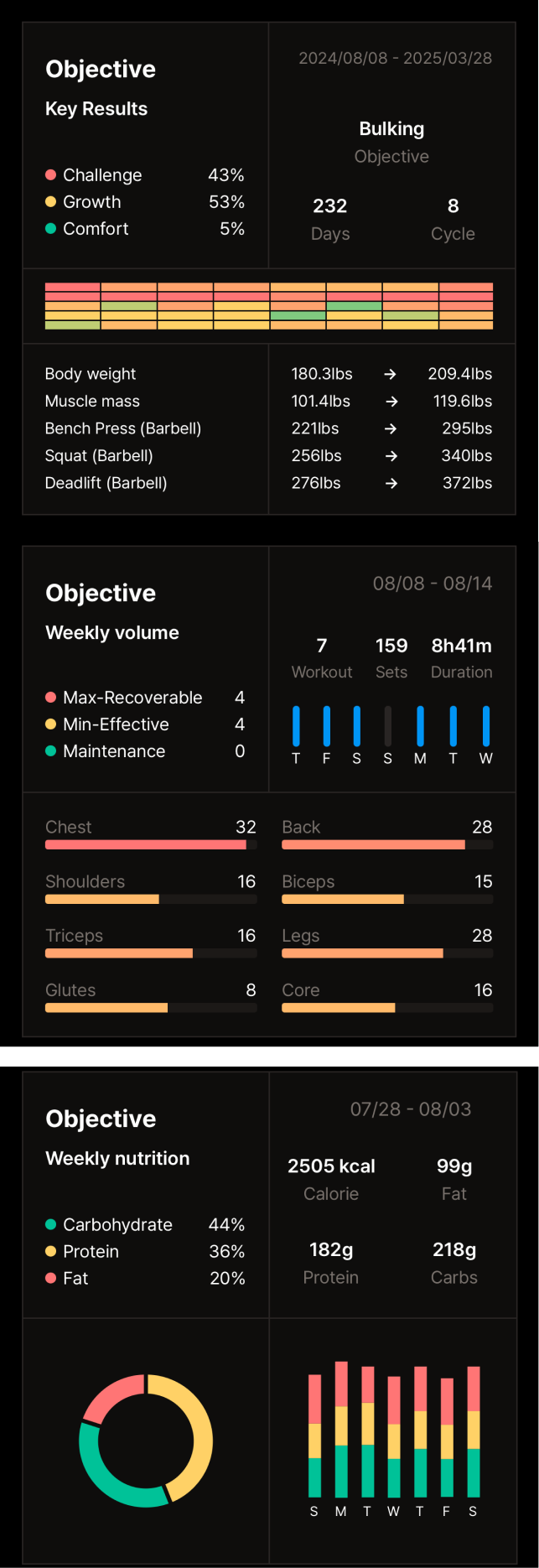Creatine: Benefits, Dosage & Myths
Introduction
Imagine a supplement that could help boost your muscle performance, making your workouts more effective and rewarding. Sounds too good to be true, right? In the world of fitness, creatine is often hailed as a powerhouse supplement. But what exactly is it, and how can it benefit you? This article will dive into the benefits of creatine, the correct dosage, and debunk some common myths, providing a comprehensive guide for fitness enthusiasts. Take Alex, for example. When Alex first started weight training, he struggled to see significant gains. After incorporating creatine into his routine, he noticed improved strength and muscle growth, motivating him to continue his fitness journey. Let's explore how creatine can help you achieve your fitness goals.

What is Creatine?
Creatine is a naturally occurring compound found primarily in muscle cells. It plays a crucial role in energy production, particularly during high-intensity activities like weightlifting or sprinting. Creatine helps replenish adenosine triphosphate (ATP), the primary energy source for muscle contractions. This allows you to perform more repetitions and sets, leading to greater muscle growth and strength gains. While your body naturally produces creatine, and it's found in foods like red meat and fish, supplementation can further enhance these levels. The most common and well-researched form is creatine monohydrate, known for its effectiveness and affordability.
Benefits of Creatine
Creatine offers a range of benefits, from enhancing muscle growth to potentially boosting cognitive function. Let's delve into some of its key advantages.
Improved Muscle Mass
Creatine supplementation can significantly increase muscle mass and strength. By increasing ATP availability, creatine allows you to train harder and longer, promoting muscle protein synthesis—the process of building new muscle tissue. Studies have shown that individuals supplementing with creatine experience greater gains in lean muscle mass compared to those who don't. This is particularly beneficial for individuals engaged in resistance training programs.
Enhanced Performance and Endurance
Creatine isn't just about building bigger muscles; it also enhances athletic performance and endurance. By delaying muscle fatigue, creatine allows you to push harder during high-intensity workouts. This can translate to improved sprint times, increased weightlifting capacity, and overall better performance in various sports and activities. Many athletes, from bodybuilders to sprinters, utilize creatine to gain a competitive edge.
Cognitive Benefits
Beyond its physical benefits, creatine may also positively impact cognitive function. Research suggests that creatine supplementation can improve memory, focus, and mental processing speed, particularly in individuals experiencing sleep deprivation or high stress. While more research is needed to fully understand these effects, the potential cognitive benefits of creatine are promising.
Creatine Dosage
Determining the correct creatine dosage is crucial for maximizing its benefits and ensuring safety. Here's a breakdown of recommended guidelines:
Standard Dosage Guidelines
- Maintenance Dose: Typically 3-5 grams per day.
- Initial Loading Phase (Optional): 20 grams per day, divided into four 5-gram doses, for 5-7 days. This can help saturate your muscles with creatine more quickly.
Creatine Loading Phase
The loading phase is a strategy to rapidly increase muscle creatine stores. While not strictly necessary, it can accelerate the onset of creatine's effects. To perform a loading phase, consume 20 grams of creatine monohydrate daily, split into four equal doses, for 5-7 days. Then, transition to a maintenance dose of 3-5 grams per day.
Dosage for Different Goals
Dosage can be adjusted based on individual goals, body weight, and training intensity, but general guidelines suggest:
| Goal | Dosage | |----------------|-------------------------------------------| | Muscle Gain | 5 grams daily | | Endurance | 3-5 grams daily | | General Health | 3 grams daily |
Debunking Common Creatine Myths
Several myths surround creatine supplementation. Let's address some of the most prevalent misconceptions:
Myth 1: Creatine Causes Water Retention
While creatine can draw water into muscle cells, this is intracellular water retention, not subcutaneous (under the skin) water retention that causes bloating. Some individuals may experience a slight increase in overall body weight due to increased water content within the muscles, but this is not fat gain.
Myth 2: Creatine is Unsafe for Teenagers
Creatine supplementation is generally considered safe for healthy adolescents when used responsibly and under the guidance of a healthcare professional or qualified sports nutritionist. It's crucial to follow recommended dosages and ensure adequate hydration. However, more research is needed on long-term effects in adolescents.
Myth 3: Creatine Leads to Kidney Damage
Numerous studies have shown that creatine supplementation does not cause kidney damage in healthy individuals with normal kidney function. However, individuals with pre-existing kidney conditions should consult their doctor before using creatine.
Safety and Side Effects
Creatine is generally safe for most people. However, some individuals may experience mild side effects:
Understanding Side Effects
- Gastrointestinal Discomfort: This can often be minimized by dividing the daily dose into smaller portions or taking creatine with food.
- Muscle Cramps: Ensure adequate hydration to prevent cramps.
Creatine and Long-term Health
Long-term creatine use has been extensively studied and is generally considered safe for healthy individuals when taken at recommended dosages. However, more research is needed to fully understand the long-term effects of high-dose creatine supplementation.
Creatine for Specific Populations
Creatine can offer unique benefits for specific groups:
Creatine for Older Adults
Creatine can help older adults maintain muscle mass and strength, which are crucial for overall health, functional ability, and independence. It can also improve bone density and reduce the risk of falls.
Creatine for Women
Creatine offers the same benefits for women as it does for men, including increased muscle mass, enhanced performance, and potential cognitive improvements. There are no specific concerns regarding creatine use in women.
Conclusion
Creatine is a safe and effective supplement that can enhance muscle growth, improve athletic performance, and potentially boost cognitive function. We've explored the various benefits of creatine, discussed optimal dosages, and debunked some common myths. This information empowers you to make informed decisions about incorporating creatine into your fitness regimen.

